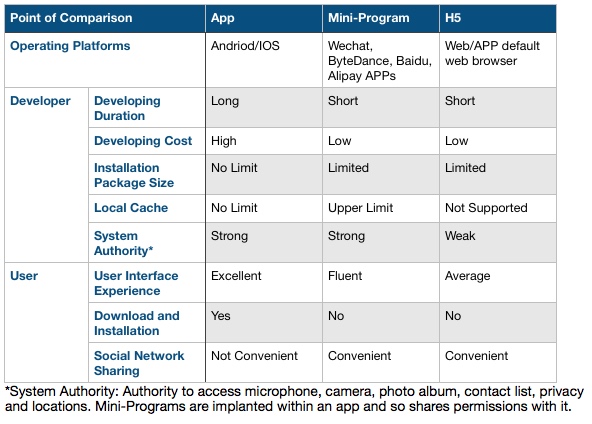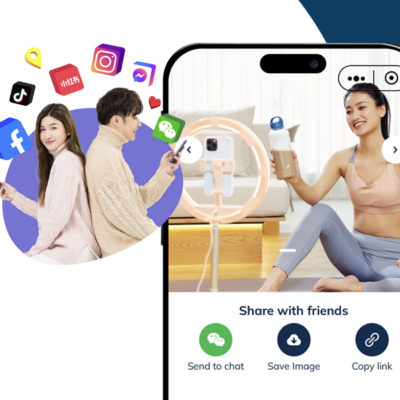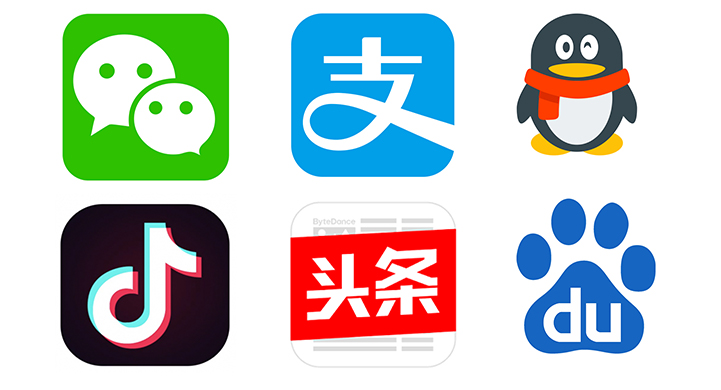Previously an eCommerce trend in China had been marketplace centralization, with the domination of T-Mall and its associated brands. Now, however, we are seeing the space becoming increasingly decentralized, as social media selling takes hold. This is especially true with the advent of Mini-Programs, which can integrate online store-based selling into the social media apps customers are using to make buying decisions.
But it isn't just marketplaces such as T-Mall and Taobao that can benefit from this integration - individual brand web-stores can also reap these benefits, by developing their own Mini-Programs for popular social media apps. How, then, can brand eCommerce make the most of the opportunities presented by Mini-Programs? What benefits can Mini-Programs bring to the table? We explore the promising relationship between traditional brand eCommerce and this cutting edge eCommerce development.
Enhanced User Experience
Mini-program "applets" provide a much smoother, more seamless experience than competing "H5" stores (HTML5-enabled mobile-optimized web-store links). This is because their interfaces much more closely imitate the app they're embedded into, and give the user the feeling of just navigating from one part of the app to another, rather than opening a limited, often somewhat clunky mini-browser within the app. Specialized features such as local caches help Mini-Programs load more quickly and smoothly than H5 alternatives.
In the following table, we break down the specific experience advantages and disadvantages for users and developers of Mini-Programs, H5, and regular standalone apps:

Cost-Effectiveness
Mini-Programs are quick to develop, cheap to develop and maintain, and easy and quick to launch online. What makes them especially competitive in this highly connected, always-online era is that It is also quick, cheap, and easy to develop and launch new versions to keep the Mini-Program up-to-date and ahead of the curve. Drawing on the advantages listed in the above table, it's easy for SMEs to keep their eCommerce-oriented Mini-Programs on track and within budget.
Consumer Proximity
Launching your own app for your web-store means having to build up a user-base from scratch. Like H5, Mini-Programs are able to tap into the massive existing user-bases of popular social media apps. This means that from launch, your Mini-Program-based web-store can be right where your target consumers already are, making high conversion rates and high visibility a much closer goal.
See-it-Buy-it Convenience
With the Mini-Program appearing on your target consumers' devices through organic searches, paid ads, and content marketing, and letting them immediately buy products in every case, Mini-Programs stand out from standalone apps and H5 which require bigger jumps from consumer interest to final purchase. This is especially true for returning to a previously viewed buy page - there is no H5 history to search through, but Mini-Programs can remember what customers have seen before.
Content Marketing
Content is key when trying to drive conversions, and Mini-Programs are an excellent vehicle for carrying this content to consumers. This is because it cuts down on the traffic losses on the landing page. Users often drop at this stage if the store sends them to another app, or is slow to load.
This can be especially true when dealing with inter-app compatibility. For example, WeChat does not allow direct linking to Taobao or T-Mall. Instead it requires users to copy a message and paste it into those apps. This is too much hassle for some users, and so leads to a loss of interest in buying the product. With Mini-Programs, linking to a product is quick, easy, and never takes them out of their unified app experience.
Convenient Payment
Brands can fully integrate eWallets such as the dominant WeChat Pay and Alipay into Mini-Programs. This bypasses the need to redirect consumers out of their shopping experience. This helps to further streamline the user experience and keep consumers engaged.
Is It Worth Taking Your Mini-Program Multi-Channel?
At the moment, there's no debate that WeChat is the king of Mini-Programs. This comes as no surprise, since WeChat was the first to launch them. It had a year or more ahead of the pack in that regard, before any competitors inevitably started to appear. However, these rivals have now had time to develop their own alternatives, and several are finding considerable success. That means that going forward, eCommerce companies would be wise to prepare to offer Mini-Programs on several platforms - but this can be taxing and costly to both develop and maintain. Therefore, developing a single solution that works on multiple platforms might the answer.
TMO Group can help unify your Mini-Program strategy, developing a single solution which can then be launched across multiple current and future channels, and maintained as easily as a single platform Mini-Program. A perfect fit for brands wanting to make the most of this new technology's exciting opportunities!
Interested in finding out more? Contact TMO Group to see if a multi-channel Mini-Program is the right fit for your China eCommerce strategy.









